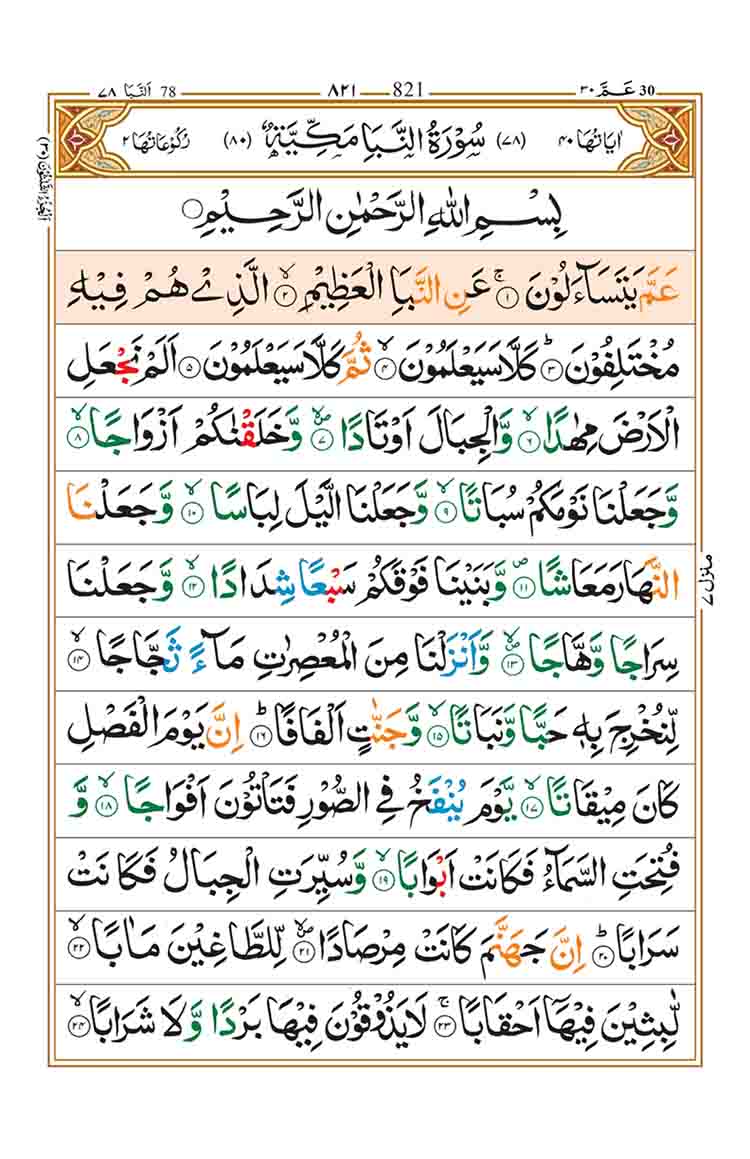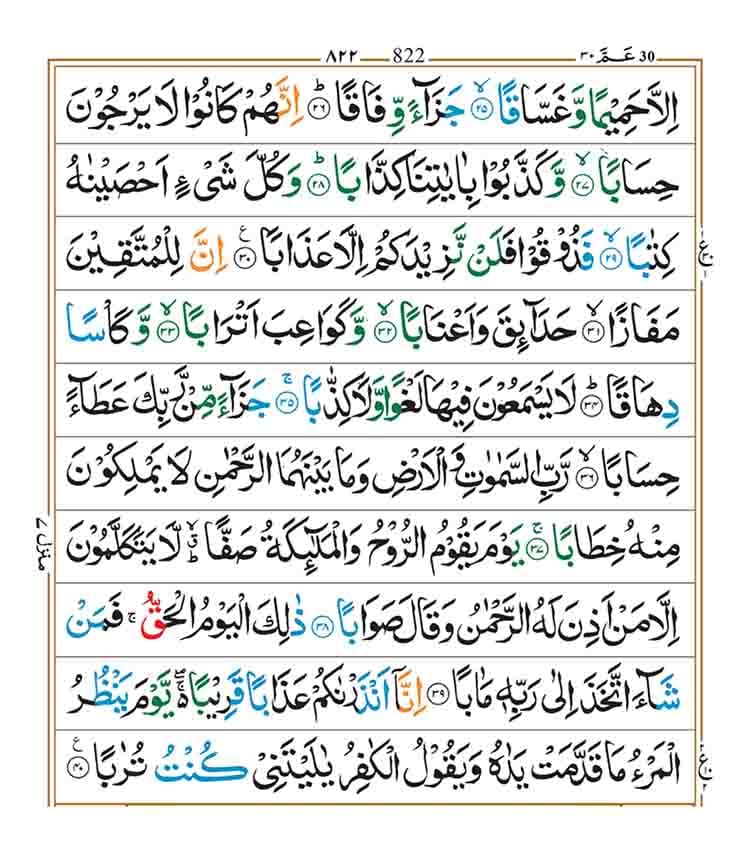Surah An Naba
Surah An-Naba begins with a question:
“What are they asking one another about? About the great news…” (78:1–2)
The chapter highlights the signs of Allah in creation—the earth, mountains, sleep, night and day, and the sky—before transitioning into a description of the Day of Resurrection. It differentiates between the fate of the righteous and the wicked, describing Hell (Jahannam) for the disbelievers and Paradise (Jannah) for the God-conscious. The Surah ends by affirming the truth of the message and warns that the Day of Judgment is inescapable.
Surah An Naba Overview
| Surah An Naba Ayats | Surah An Naba Words | Surah An Naba Letter | Surah An Naba Ruku |
| 40 | 176 | 796 | 2 |
Listen Surah An Naba Online
Colour Coded Tajweed Rules

Read Surah An Naba Online


Meaning & Importance of Surah An Naba
The “great news” (an-naba al-azim) refers to the Resurrection and the Day of Judgment—realities that the disbelievers found hard to believe or even ridiculed. This Surah seeks to correct their attitude by pointing to:
Key themes of the Surah include:
The natural order and balance as signs of a Creator.
The certainty of resurrection based on divine power.
The severe punishment awaiting the deniers.
The eternal reward awaiting the pious.
Its language is concise, rhythmic, and highly visual, designed to shock the listener into awareness.
Virtues & Benefits of Surah An Naba
Encourages reflection on life after death and divine justice.
Reminds us of Allah’s signs in creation—a source of faith-building.
Differentiates between the end of the righteous and the wicked.
A frequently recited Surah in Salah, especially in shorter prayers.
Strengthens belief in the Hereafter, which is central to Islamic faith.
“Indeed, the Day of Judgement is an appointed time.”
(Surah An-Naba, 78:17)
This verse highlights the precision and certainty with which Allah has planned the Hereafter.
Surah An-Naba is a powerful reminder that the world is not without purpose. It calls listeners to recognize the signs around them, believe in the inevitable resurrection, and prepare for accountability in the Hereafter.
Read More Surahs
Surah Yaseen | Surah Maryam | Surah Yusuf |
Surah Waqiah | Surah Kahf | Surah Rahman |
Surah Juma | Surah Muzammil | Surah Falaq |
